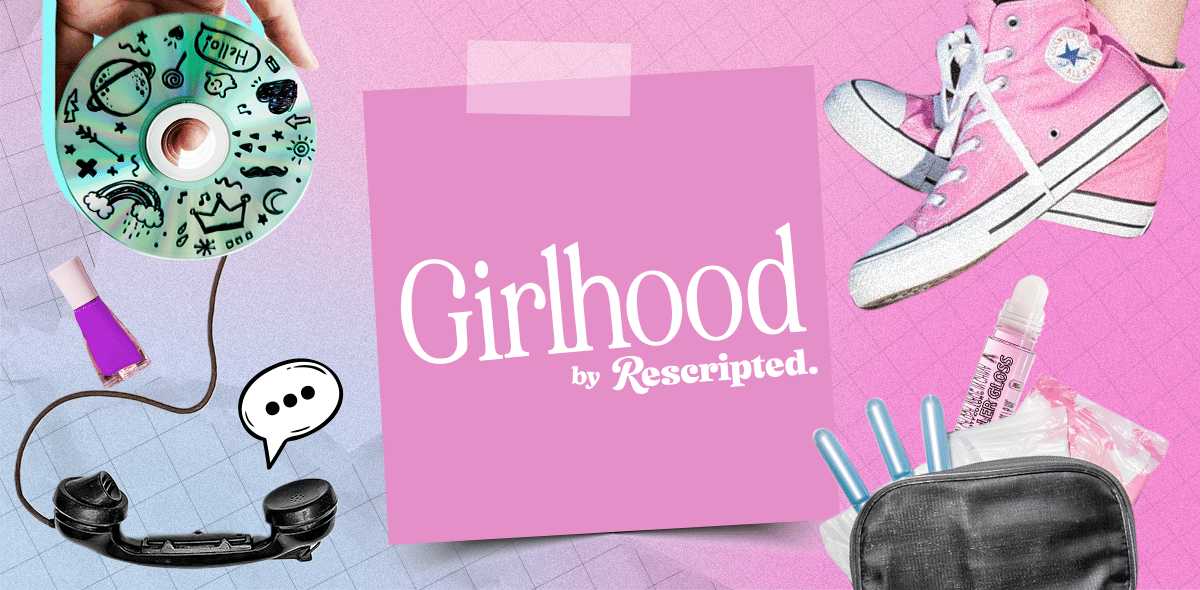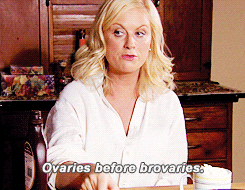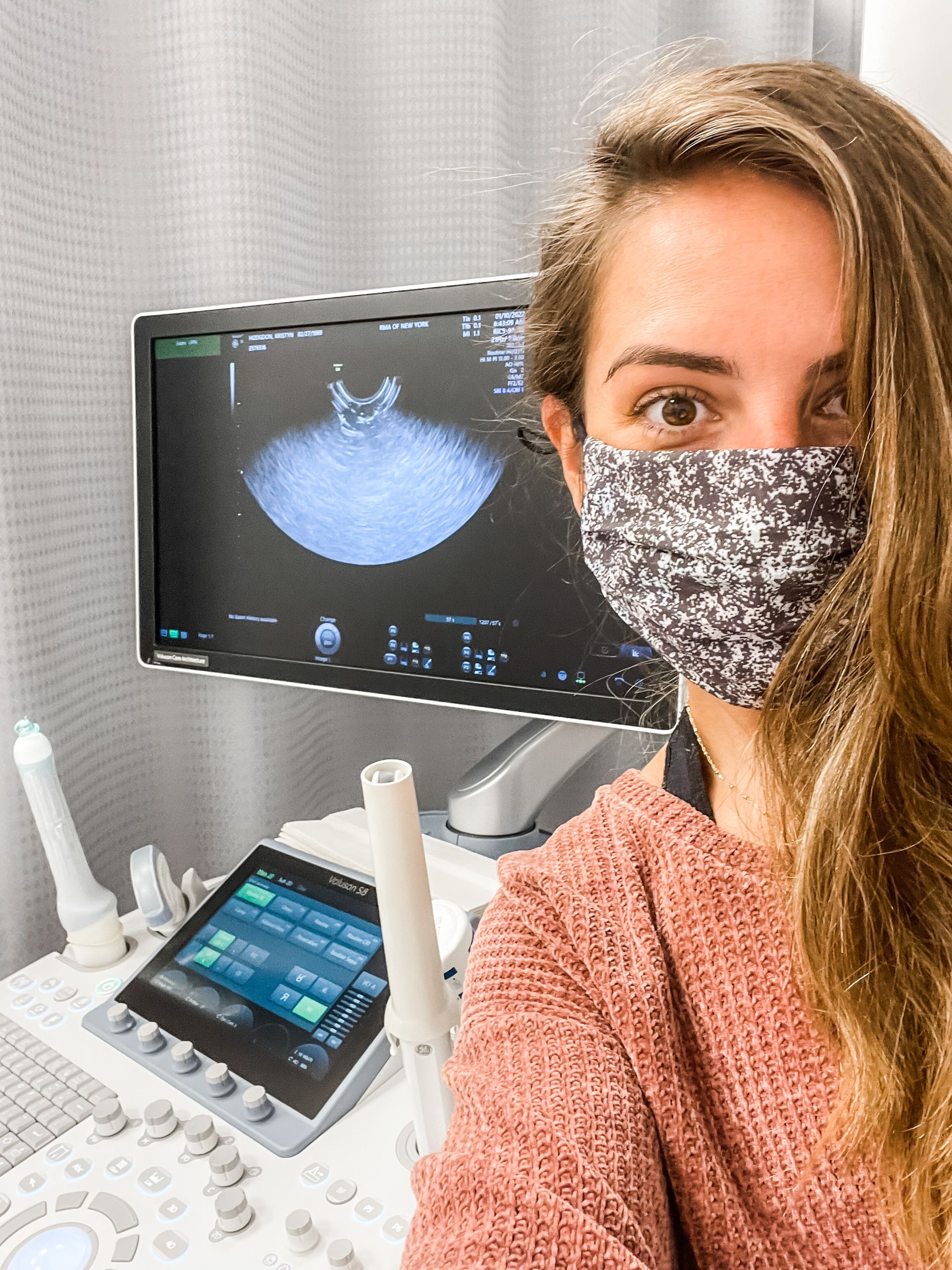- Girlhood
- Posts
- What Amy Poehler Taught Me About Being A Homebody
What Amy Poehler Taught Me About Being A Homebody
Plus, why protecting fertility is a smart move for your whole body

Hi friend,
If you’re new here, welcome to Girlhood, the group chat we should have had all along — where we talk openly about our bodies, the questions we whisper about, and the everyday moments that make us pause, laugh, or rethink life. It’s everything you’re feeling, but didn’t know how to say.
Want to take the conversation even further? Join our WhatsApp community to connect, share, and get support in real time. Let’s dive in!
📚 I Am Large; I Contain Multitudes
This week, I went on my first business trip in two years (I was pregnant and had a baby, so there’s that). Historically, I’ve been one of those type B travelers who snoozes her alarm and cuts it way too close at the airport. I know some of you are already cringing — and yes, that includes my husband, who believes one should arrive at JFK approximately seven hours before takeoff.
But this time was different. Maybe it was the anxiety of leaving all three kids at home for the first time, but I was up before my 4:50 a.m. alarm, fully dressed, and through security with time to spare. I even had Starbucks in hand before the sun came up. Who was this person?

That question lingered all week. At the conference, I found myself toggling between two versions of me: the confident co-founder who loves connecting with people, and the quieter one who sneaks back to the hotel room for a breather before the next event. Both felt true.
On the flight home, I listened to Amy Poehler’s podcast with Kate McKinnon, who now lives on a quiet rural property, gardens, has taken up woodwork, and prefers small circles to big crowds. I thought, “One of my all-time favorite SNL cast members, a homebody?” And somehow, it made perfect sense.
It reminded me of Walt Whitman’s line, “I am large; I contain multitudes.” Lately, that feels truer than ever. Despite what our Myers-Briggs results or horoscopes might tell us, this season of life is teaching me that we don’t have to pick just one version of ourselves.
Life isn’t meant to be predictable, and maybe that’s the part that makes it worth paying attention to.
🔍 Ask Clara: Why is laughter good for the soul?
💌 Can’t find Girlhood in your inbox?
Check Spam or Promotions, drag us back, then add [[email protected]] to your contacts and ⭐ it, so we always land right where we belong.
👩🏼⚕️ Why Fertility Still Matters (Even When You’re “Done” Having Kids)
At the ASRM fertility conference this week, my cofounder Abby and I were talking with our friend Dr. Carmen Messerlian, a Harvard-trained reproductive epidemiologist. The conversation started the usual way — how to avoid harmful chemicals that can disrupt hormones and fertility — when one of us said what we were both thinking: “But we’re done having kids. Why do we need to worry about fertility anymore?”
Carmen’s answer stuck with us. Preserving fertility well into your 40s isn’t just about reproduction. It’s protective for your brain, your heart… your whole body.

It turns out a longer reproductive lifespan, meaning more years of natural estrogen, is linked to better brain health and a lower risk of dementia. Estrogen helps protect regions like the hippocampus and prefrontal cortex, which are key for memory and decision-making. Research shows that women with longer estrogen exposure have better cognitive function and even greater brain volume in these areas.
So fertility isn’t just about being able to conceive. It’s a marker of overall health. Taking care of your hormones now can pay off decades later, even if kids aren’t in the picture.
It makes me wonder: what if we thought about fertility the way we think about sleep or heart health, something we protect because it keeps our brains and bodies strong? How would that change the way we actually take care of ourselves?
🔍 Ask Clara: How does perimenopause affect your brain?
📬 Your friend’s cool for forwarding this, but don’t wait — subscribe to Girlhood, and get the real talk delivered straight to your inbox first. And for conversations that happen in the moment, join our WhatsApp community to connect with other women who get it.
👏🏼 Four Kinds of PCOS (and Why That Actually Feels Hopeful)
I’ve had PCOS for as long as I can remember. My periods have never been regular — sometimes showing up after 60 days, sometimes not at all — and acne was a constant companion through my teens and twenties. But unlike many women with PCOS, I don’t have insulin resistance and was never prescribed metformin. My version never quite fit the “textbook” description.

This week, researchers from Karolinska Institutet published a major study in Nature Medicine that might finally explain why. After analyzing data from nearly 12,000 women across multiple countries, they identified four distinct PCOS subgroups, each with its own hormonal and metabolic profile.
There’s HA-PCOS, marked by high androgen levels (think acne and abnormal blood lipids); OB-PCOS, linked to higher BMI and insulin resistance; SHBG-PCOS, a milder form with fewer fertility problems; and LH-PCOS, characterized by elevated luteinizing hormone and AMH, often causing complications during IVF.
It’s the first time researchers have clearly shown that PCOS isn’t just one condition; it’s a spectrum. That might sound like a small distinction, but for the millions of us living with it, it’s huge. It means treatment can finally move from trial-and-error to something more personalized, based on how our bodies actually work.
For me, it’s validating to know my version of PCOS, the one that explains my acne but not the insulin resistance, has a name. It doesn’t change everything overnight, but it feels like the beginning of better answers.
🔍 Ask Clara: How is PCOS diagnosed?
💸 Share your story! You’ve been through some sh*t — why not get paid to talk about it? 💸
Rescripted is collecting real stories from real women — because sharing makes us feel less alone.
If we feature your story, you’ll receive $20 and help normalize conversations many of us are still whispering about.
👉 Share your story here.
💜 Thanks for being part of something powerful.
😒 Depo-Provera, Risks, and Making Choices That Feel Right
I was at my kids’ soccer practice the other day when another mom asked what I do for a living. As soon as I said “women’s health,” she leaned in like we were about to swap secrets. Within minutes, we were talking about how our generation (elder millennials, where you at?!) spent the better part of our twenties on hormonal birth control. It wasn’t just about responsibility, either. For many of us with PCOS or heavy, painful periods, birth control wasn’t a choice so much as the only solution we were ever offered.

So when I read the NBC News story about the Depo-Provera lawsuit, my heart broke a little. The injectable birth control, used by millions of women for decades, has now been linked in some studies to an increased risk of meningiomas, tumors that grow from the lining of the brain. More than a thousand women are suing Pfizer, saying they were never adequately warned about possible long-term effects. The company denies wrongdoing, and ACOG notes that the overall risk is small. But “small” feels abstract when you’re the one living with the fallout.
What’s especially frustrating is how familiar this all feels. From birth control pills to IUDs to hormone therapies, women have long been expected to shoulder the physical and emotional burden of contraception. We’ve endured side effects that were brushed off, symptoms that were minimized, and a medical system that too often treats our pain as anecdotal rather than evidence.
I don’t know what the answer is, but I do know this: women deserve transparency. Not fine print. Not reassurance. Real, honest conversations about risks, benefits, and options — so we can make choices with both eyes open.
xo,
Kristyn
🔍 Ask Clara: Which birth control is right for me?
🩸 Never Miss a Women’s Health Signal
Want Rescripted to pop up in your Google Top Stories? Add us as a preferred source, and stay ahead on everything from periods to to pregnancy to perimenopause.
👉 Add Rescripted on Google here.




Reply